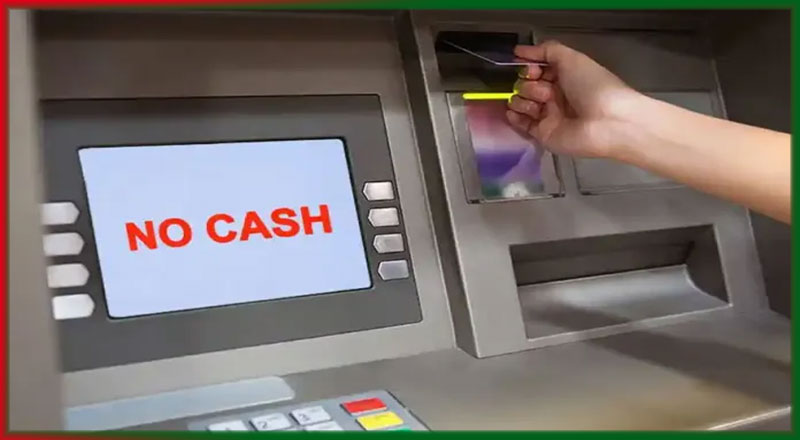In a big relief for the common citizens, the Reserve Bank of India has decided to charge penalties on banks for non-availability of cash in ATMs. The RBI has launched the ‘Scheme of Penalty for non-replenishment of ATMs’, which will come into effect in October. Under the scheme, a penalty of Rs 10,000 per ATM will be levied if they are out of cash for more than 10 hours per month. The Reserve Bank of India (RBI) has directed all banks and white label automated teller machine operators to ensure that ATMs never run out of cash.
Explaining why the new rule will be implemented, the RBI said in a statement: “A review of downtime of ATMs due to cash-outs was undertaken and it was observed that ATM operations affected by cash-outs lead to non-availability of cash and cause avoidable inconvenience to the members of the public. Therefore, been decided that the banks/ White Label ATM Operators (WLAOs) shall strengthen their systems/ mechanisms to monitor the availability of cash in ATMs and ensure timely replenishment to avoid cash-outs. Any non-compliance in this regard shall be viewed seriously and shall attract a monetary penalty.”
In the case of white label ATMs, the penalty would be charged to the bank that is meeting the cash requirement of that particular machine. The bank will be allowed to recover the penalty amount from the white label ATM’s operator.
The Scheme of Penalty will be administered by the ‘Issue Departments’ of the regional offices of the bank. The competent authority to impose the penalty will be the officer-in-charge of the Issue Department of the regional office under whose jurisdiction the ATMs are located.
To appeal against the decision of the competent authority, banks/ WLAOs will have to reach out to the regional director/officer-in-charge of the regional office concerned, within one month from the date of imposition of penalty. Appeals would be considered only in cases of genuine reasons beyond the control of bank/ WLAOs such as the imposition of lockdown or strike.





